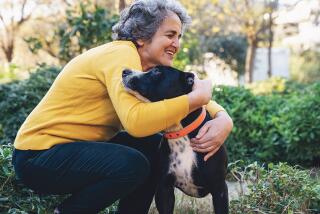Pork from pigs exposed to H1N1 virus is safe, researchers say
- Share via
Reporting from Columbus, Ga. — You can’t get the swine flu virus by pigging out on barbecue, even if the pigs you used for chow had the disease, the federal government has confirmed.
A new study conducted by the U.S. Department of Agriculture provided “additional confirmation” that meat from pigs exposed to the H1N 1 virus did not have the virus in it.
“This research provides additional reassurance for consumers about the safety of pork,” Edward B. Knipling, research service administrator with the department, said in a statement this week.
Researchers got samples of the virus from the Centers for Disease Control and Prevention. With those samples from infected people in California and Mexico, they inoculated 30 five-week-old pigs, which were studied for symptoms of the disease and then euthanized in three, five or seven days.
The researchers then tested samples from the pigs’ lungs, liver, muscle, spleen and other organs to look for live virus and nucleic acids from the virus. The pigs appeared to have upper respiratory ailments consistent with influenza, but the study found no evidence that the virus had spread.
According to the USDA: “These findings . . . support recommendations of the World Health Organization that pork harvested from swine that had been infected previously and had recovered from the virus can be safely handled or eaten, following basic hygiene practices for handling of meat.”
Chitwood writes for the Columbus Ledger-Enquirer.
More to Read
Sign up for Essential California
The most important California stories and recommendations in your inbox every morning.
You may occasionally receive promotional content from the Los Angeles Times.













